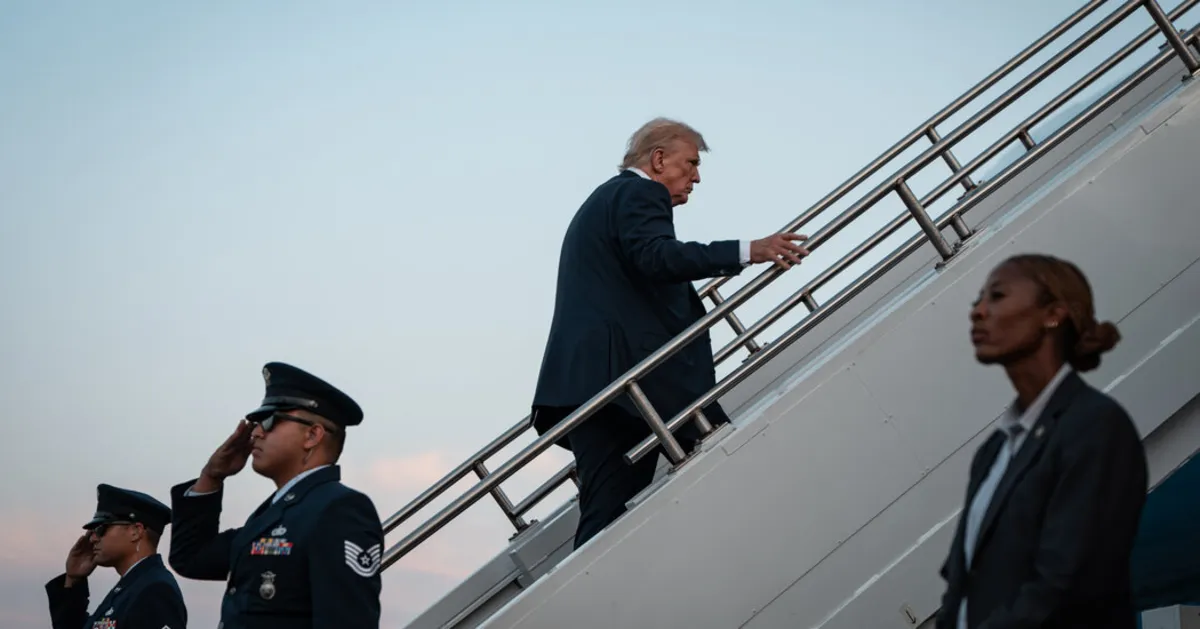
Just a decade ago, the landscape of U.S. military interventions in Latin America appeared to be fading. The Obama administration famously declared the end of the Monroe Doctrine, a longstanding principle asserting U.S. military supremacy in the Americas. However, recent developments have revived this cornerstone of American foreign policy, raising concerns about renewed military involvement in the region. Following President Trump's directive for the Pentagon to engage militarily against specific Latin American drug cartels, the implications of this order are being scrutinized by leaders across the continent.
Countries like Mexico and Venezuela, where the U.S. administration has labeled certain cartels as terrorist organizations, find themselves in particularly precarious positions. The potential consequences of Trump's military orders have sparked debates and fears of increased U.S. military interference. This sentiment resonates throughout Latin America, where any hint of intervention can trigger a surge in anti-American sentiment, even in nations like Ecuador that have been grappling with violent drug wars.
Patricio Endara, a businessman from Quito, illustrates the mixed feelings many Latin Americans have towards foreign military presence. “I’m a right-wing conservative, so I want armed citizens and the military actually shooting,” he stated. “But I wouldn’t agree with having foreign soldiers in Ecuador.” Such skepticism is deeply rooted in the region's history of U.S. military interventions, which have often left behind a legacy of distrust and resentment.
The memories of past interventions are fresh in the minds of many. Colombian senator Iván Cepeda remarked, “Those are formulas that have shown, to the point of exhaustion, their failure.” The impact of these interventions is profound, often inflicting immense damage and leaving power in the hands of corrupt elites aligned with U.S. interests. This historical backdrop has shaped a collective consciousness across Latin America, especially given the U.S.'s Cold War policies that prioritized American interests over democratic ideals.
The original Monroe Doctrine, articulated by President James Monroe in 1823, was meant to deter European colonial interventions in the Americas. However, its application evolved significantly over the decades. For instance, President James K. Polk used the doctrine to justify the Mexican-American War, leading to the U.S. acquisition of vast territories that include present-day California and Texas. Later, President Theodore Roosevelt introduced a corollary to the doctrine, asserting the U.S. right to intervene in the Americas under the guise of maintaining order and protecting American interests.
Throughout the 20th century, the U.S. engaged in numerous military actions across the Caribbean and Central America, often justified by the need to protect American property or interests. For example, U.S. forces intervened multiple times in Cuba, occupied Haiti for nearly two decades, and were heavily involved in Nicaragua and Honduras. These interventions contributed to a growing anti-American sentiment, as Latin American nations began to see U.S. involvement as a violation of their sovereignty.
The Cold War era saw the U.S. supporting coups against democratically elected leaders in countries such as Guatemala, Brazil, and Chile. These actions unified the region against perceived threats to national sovereignty and highlighted the consequences of U.S. foreign policy. In recent years, as tensions have flared, Latin American nations have rallied together to oppose threats from the U.S., including Trump's remarks about regaining control over the Panama Canal.
The 1989 U.S. invasion of Panama, dubbed “Operation Just Cause,” serves as a stark reminder of the human cost of such interventions. As community leader Efraín Guerrero noted, “For us, it became ‘Forgetting Forbidden,’ because we have to remember all those who died.” This legacy looms large, especially as the U.S. considers military action in larger nations like Venezuela, where President Nicolás Maduro has publicly condemned any hints of American intervention.
The revival of the Monroe Doctrine and the prospect of renewed military interventions in Latin America signal a troubling shift in U.S. foreign policy. As nations grapple with the implications of these actions, it is clear that the history of U.S. military engagement in the region will continue to shape perceptions and responses. The delicate balance between addressing drug-related violence and respecting national sovereignty remains a contentious issue that could redefine U.S.-Latin American relations for years to come.